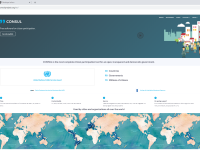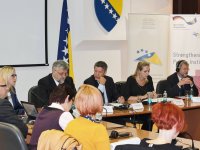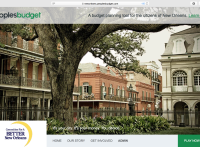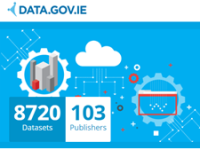Innovative use of digital and online opportunities has made it easier for people to have a greater say in local decision-making in Scotland. A unique cross-sector collaborative approach was taken to developing digital, with collective solutions and sharing of learning achieved through an open, iterative and experimental methodology. The Scottish Government encouraged rapid growth of participatory budgeting and digital, in line with the ambitions of open government and strengthening democracy.
Case Studies
Innovations:
0
This website, as well as any data and map included herein, are without prejudice to the status of or sovereignty over any territory, to the delimitation of international frontiers and boundaries and to the name of any territory, city or area.
Madrid's Territorial Rebalancing Fund (TRF) is a new policy instrument created to tackle urban vulnerability and segregation based on a sound scientific methodology, able to dynamically map social vulnerability in detail. It redistributes resources aimed at implementing feasible projects defined in the context of participative processes managed by the district councils.
CONSUL is an online platform for public participation in decision-making, launched initially by the Madrid city council and subsequently adopted by several governments all over the world. The platform benefits from its open source code, making it free for any government, or CSO, to make use of it and propose improvements. CONSUL is designed for citizens to voice their concerns and participate through the development of proposals, votes for new laws, debates, crowd laws, participatory budgets…
In an increasingly divisive and polarised world, the annual nationwide Conversation festival LAMPA in Latvia has become an outstanding platform for discussing matters of societal concern about Latvia, Europe and the world in face-to-face conversations. Co-created by a diverse array of civil society organisations, public authorities and private companies, the festival opens up policy-making processes to wider audiences and creates an open platform for direct engagement among people in Latvia.
This project presents the new approach in service delivery, through which we enabled deaf and hard of hearing persons to have an access to the most essential services, such as emergency call and civil registry services. Tireless engagement of deaf community in service design resulted in elaboration of user centered and People with Disabilities-tailored services, enabling beneficiaries to contact emergency services using a text-based or a video calling system and squire necessary civil documents…
In 2015, a constitutional reform on transparency allowed the INAI to propose a specific set of actions to adopt and institutionalize open government principles in Mexico. Thus, it designed a comprehensive strategy that mainly consisted of the implementation of provisions, methodologies and public policies to guide and articulate the design, implementation, and operation of open government in public institutions, the three levels of government and the three branches of government nationwide.
Proactive Transparency initiative in Bosnia and Herzegovina is the first policy to address proactive disclosure of government information, co-created by the public institutions and civil society organisations. The result of of this collaboration was a policy document, 38 defined standard pieces of information, research conducted by civil society and improvement of government transparency.
The People’s Budget is an interactive, mobile-friendly website that demystifies local spending by asking residents to play "mayor for a day" by balancing their city budget. Users learn more about how government works and how it spends money before deciding for themselves how to divide discretionary funds. The answers to these questions are synthesized and reported back to the community and city leaders to help get limited tax dollars to the programs that need them the most.
Ireland’s Open Data Initiative (ODI) is a key element of the government’s Public Service Reform activities. It aims to increase transparency, stimulate new business, build trust in Government and improve the lives of citizens by delivering better services. The ODI involves significant engagement with citizens, business, the data community, researchers and public bodies. Over 8700 datasets from 100 publishers are available on the ODI Portal which provides free access to data via a central…
The Regione Emilia-Romagna has, since 2014, developed a pilot strategy to promote and coordinate the use of social media by local police departments.
Keeping in touch with citizens is the core business of every local police, but today, traditional communication tools and skills are not enough to respond to citizens' needs and demands.
As such, we established a network of people inside local police departments to share expertise in the area of social media.






